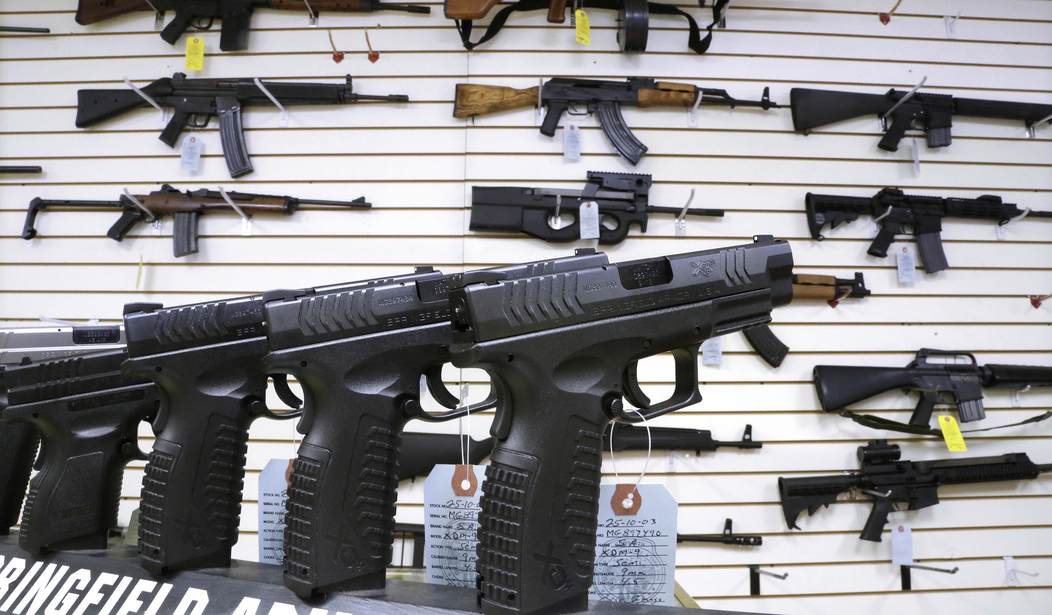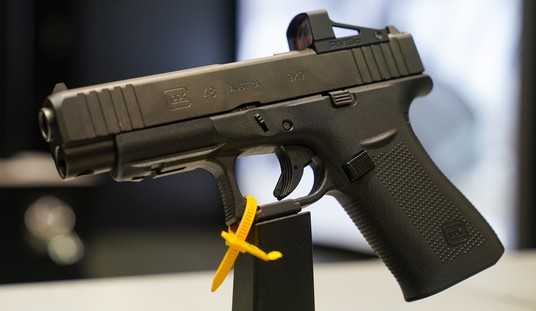There are a lot of issues with the ATF's new rule defining who is a dealer and who isn't. In particular, the definition seems straightforward but is actually pretty vague. After all, how do you determine whether something was sold at a profit or not? What's the definition for that?
I mean, if I buy a gun today and increases in value tomorrow and I sell it at fair market value, was I seeking a profit or did I just get lucky? Does the ATF look at inflation-adjusted prices or just raw dollars?
There's a lot of ways this can trip people up.
And it doesn't help when people who should know better end up trying to defend this rule as it is.
That's what one local attorney did when he spoke with his local TV station about the rule.
Under the new rule, businesses subject to background checks due to their status as federal firearms licensees remain largely unaffected. However, legal experts suggest that the latest regulation intends to prompt private citizens to exercise greater vigilance regarding who they sell their guns to.
Grant Wille, a criminal defense attorney at Ralls & Wille in Tucson, shared insights on the purpose of the rule stating "The purpose of this rule, as far as I can tell, is just asking gun owners to be a little more responsible."
How?
This seeks to look at the dollars I spent versus the dollars I received on a single firearm purchase and sale. What in that remotely looks like they're asking me to be more responsible?
Most gun owners who engage in private transactions take a certain amount of care in who they sell their guns to. Back when Facebook would still allow you to market private gun sales, a lot of people would offer a discount if you showed your concealed carry permit. This was to make sure you weren't prohibited.
Others will decide against selling a gun if they get even the slightest tingle that something isn't right.
And nothing about this rule changes anything about responsibility. Not in the least.
"Is there a magic number? The whole point of this is ‘no, there is not a magic number,’" Wille stated.
He further explained that even selling just one firearm could result in the need for a federal firearms license, drawing an analogy to the real estate business.
"If you’re in the business of flipping house. You’re just getting started, you do one house. With that one house, you’re trying to make a profit, then you’re in the business of flipping houses."
That's a terrible comparison and for a lot of reasons.
First, no one buys a house to flip without a drive to make a profit right from the start. Even then, in most states, you don't need a real estate license to flip houses. That alone undermines the argument.
Plus, guns are portable goods that can increase or decrease in value, some of which are particularly collectible.
Let's say I come across someone with a Singer-built, unserialized 1911. These are apparently pretty collectible, built for World War II, but a lot of people aren't familiar with them. Someone just wants it gone, so they sell it to me for $200.
Now, I can turn around and sell it for a lot more, but does that suddenly make me a dealer? Or does it make me an opportunist?
Now, let's take this and flip the product. Someone comes across an Action Comics #1. They don't want it and they just want it get rid of it, so they sell it to me for a small price. I then sell it for a buttload more money, which is possible since that's the first appearance of Superman. Am I now a comics dealer?
Of course not. I'm a guy who made a lucky find and investment.
One sale of anything doesn't make anyone a dealer. Fixing up a classic car and selling it doesn't make you a car dealer. Flipping a house doesn't make you a real estate agent. Why would selling a single gun somehow make you a gun dealer?
It doesn't.
What we need to remember is that this isn't about responsibility or anything else. This is about trying to restrict the private sale of firearms to such a degree that few will be remotely interested in conducting private sales. It's a way to push universal background checks when there's no chance at all of such a law passing at the federal level.
And you'd expect a criminal defense attorney to recognize that fact.
Since he can't, I don't think I'd trust him to defend me in court. I'm not sure he's got the brainpower for it.








